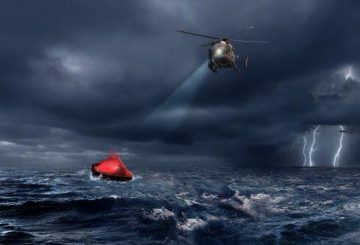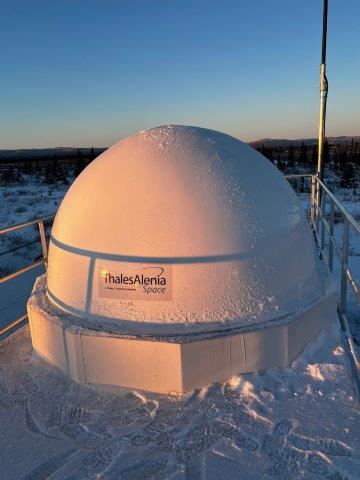Thales Alenia Space, a joint venture between Thales (67%) and Leonardo (33%), has signed an agreement with prime industrial contractor Appworks to provide a MEOSAR-based fully operational search and rescue (SAR) chain. COSPAS-SARSAT service to Thailand.
The solution will enable immediate detection and detection of any distress signal emitted by the COSPAS-SARSAT radio beacon on land, in the air and at sea within a 2,500 km radius centered on Bangkok, mainly using Galileo’s satellite positioning system. The solution includes a Mission Control Center (MCC) dedicated to managing and distributing alerts and a Rescue Coordination Center (RCC) to manage all search and rescue operations (Armed Forces, Coast Guard, Rescue at Sea etc.). )
To achieve this unparalleled performance, Thailand will benefit from Thales Alenia Space’s innovative MEOLUT next product, which is based on the disruptive approach of phased array antennas. Conventional MEOLUT systems, with six large satellite dishes each the size of a football field, are capable of receiving signals from six satellites (one per dish), while MEOLUT’s next solution, its smaller antennas, are placed low. 6 square meters. MEOLUT NEXT can detect distress signals up to 5,000 kilometers away.
The solution has already been selected by major COSPAS-SARSAT users (United States, Canada, France, European Union, Togo) over the last few years and is currently in operation, recently demonstrated in the Indian Ocean.
On November 18, 2022, a MEOLUT next antenna picked up the distress signal of the sailing yacht Asteria, led by the captain. Tapio LehtinenParticipating in the Golden Globe Regatta, 2,000 km southwest of the coast of La Reunion, out of range of VHF radios and other communications.
As the Asteria was sinking, Tapio only had time to put on his survival suit and jump into the sea in his life raft. Within 4 minutes, signal emissions from MEOLUT NEXT pinpointed the vessel’s position, and over the next few hours rescue teams helped recover Tapio.
“This is the first contract in Asia for the MEOLUT Next solution, which now has four continents: the Americas, Europe, Africa and Asia. Thales Alenia Space believes in space as the new horizon for humanity, allowing Improve life on Earth by making it more sustainable. Saving lives is part of our company’s ambitions and our significant contribution to search and rescue services provided by Cospas-Sarsat proves this” – hto declare Benoit Brody, Vice President of Intrusion Business for Thales Alenia Space in France.
Gospas-Sarsat It is an intergovernmental organization established by Canada, the United States, Russia and France. Operational since 1988 and present in more than 40 countries worldwide, this satellite-based information distribution, search and rescue warning detection system is best known for detecting and locating distress beacons activated by aircraft, ships and hikers.
Today, nearly 1 million ships and 300,000 aircraft are equipped with COSPAS-SARSAT distress beacons. To date, the COSPAS-SARSAT service has saved more than 57,000 lives in more than 17,000 search and rescue events. In recent years, COSPAS-SARSAT has helped save an average of 7 lives per day.
systems MEOLUT (Middle Earth Orbit Local User Terminal) Conventional satellite dishes use large satellite dishes and are limited by the number of satellite signals they can receive. Thales Alenia Space’s MEOLUT Next solution is compact, less than six square meters in size and capable of tracking up to 30 satellites, significantly improving the detection rate of distress signals and increasing the coverage area. As there are no mechanical components, hardware maintenance costs are among the lowest in the market.
Source: Thales Alenia Space press release

“Total coffee junkie. Tv ninja. Unapologetic problem solver. Beer expert.”



